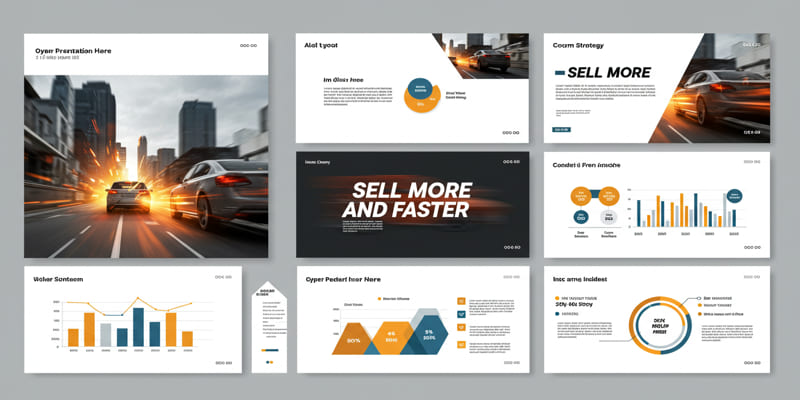Artificial Intelligence (AI) is no longer just a buzzword—it’s a driving force behind some of the most profound transformations in the financial sector. From automated risk models and fraud detection to personalized financial services and predictive analytics, AI is reshaping how the industry operates at every level.
In a recent episode of Leading with Data, Eleni Verteouri, AI Tech Lead and Director at UBS, shed light on this dynamic landscape. With more than a decade of experience and recognition as one of the Forbes Cyprus 20 Women in Tech 2024, Eleni’s insights offer a compelling view of AI’s evolving role in finance. Let’s explore the highlights from a deep dive into her professional journey and her perspective on how AI is redefining modern finance.
A Career Rooted in Curiosity and Complexity
A deep interest in technical problem-solving sparked Eleni’s entry into the tech world. She began her journey in engineering, where she discovered her affinity for distributed computing and GPU technologies. At the time, these areas were largely unexplored in mainstream applications but had vast potential—especially in industries demanding high-performance computing, like finance.
This curiosity led her to pursue a Master’s in Quantitative Finance at ETH Zurich and the University of Zurich, combining her technical foundation with advanced modeling and financial theory. This blend of skills became her gateway into banking and AI, culminating in her current leadership role at UBS.
The Shift: From Traditional Models to AI-Driven Finance
Historically, finance has been built on deterministic, rule-based systems. Analysts relied heavily on rigid mathematical models to predict outcomes, assess risks, and develop strategies. However, as Eleni highlights, the arrival of AI has introduced a layer of adaptability and intelligence that traditional frameworks couldn’t provide.
AI’s integration into banking didn’t happen overnight. It began with automating routine processes, but its role has evolved dramatically. Today, AI enables everything from fraud detection in real-time to hyper-personalized financial advice and dynamic portfolio optimization.
Eleni notes that financial institutions are moving away from restrictive models to flexible, AI-enhanced environments. This transformation is enabling faster innovation, quicker decision-making, and more personalized services for customers—all powered by data.
Generative AI: Building the Future of Financial Intelligence

One of the most exciting developments Eleni discussed is the role of generative AI. Unlike traditional models that rely purely on historical data, generative AI can simulate possibilities, create content, and synthesize information from incomplete inputs. In finance, this opens up incredible opportunities for innovation.
At UBS, Eleni leads the development of an internal generative AI platform that integrates with various tools, supports diverse use cases, and encourages cross-departmental collaboration. The focus is not only on productivity but also on ensuring security, ethical use, and governance.
These AI systems assist with tasks such as document processing, summarizing regulatory changes, generating insights from raw data, and supporting compliance workflows. By automating knowledge-intensive processes, generative AI is freeing up human analysts to focus on strategy and decision-making.
What Does Responsible AI Look Like in Finance?
With the growing power of AI comes the pressing need to use it responsibly. Eleni emphasizes that Responsible AI isn't just about mitigating risks—it's about embedding ethics, transparency, and accountability into every layer of development and deployment.
She outlines several key focus areas:
- Education and Awareness: Ensuring that developers, engineers, and business users understand how AI works and its potential consequences.
- Ethical Guidelines: Establishing clear principles around data usage, fairness, and transparency.
- Startup Partnerships: Collaborating with smaller tech firms to bring innovative solutions to life while maintaining safety and oversight.
- Human Oversight: Even with advanced automation, humans remain essential in validating and refining AI outputs.
In a highly regulated industry like finance, these guardrails are crucial. They help institutions balance innovation with trust—ensuring that AI not only performs well but also acts in the best interest of clients and stakeholders.
Empowering Through Technology: A Vision for Women in Tech
Beyond the algorithms and models, Eleni is passionate about the human side of technology—particularly when it comes to empowering women in tech. She believes technology can serve as a great equalizer, offering opportunities based on capability rather than background or appearance.
Her message is clear: Confidence, assertiveness, and visibility are essential for women to thrive in this space. She encourages women to speak up, take ownership of projects, and actively seek leadership roles. At the same time, she advocates for inclusive environments that nurture diverse perspectives and innovation. By promoting diversity and inclusion, the finance industry not only becomes more representative but also more resilient and forward-thinking.
The Blending of Personal and Professional AI Use
In her workday, Eleni experiences firsthand how AI is blurring the lines between manual tasks and intelligent assistance. She regularly uses AI tools for coding, debugging, proofreading, and even brainstorming ideas.
This hybrid workflow—where AI supports but doesn't replace human effort—has made her more efficient and self-sufficient. It’s a model she believes will become the norm as professionals in all fields adopt AI as a collaborative partner.
Looking Ahead: Trends Shaping the Future of AI in Finance

As we move deeper into the era of digital transformation, Eleni highlights several key trends on the horizon:
- Deeper Integration of Generative AI into financial systems, enabling more dynamic and personalized user experiences.
- Governance and Regulation are evolving to keep pace with the speed of AI innovation.
- Sustainability and Ethics take center stage as organizations prioritize long-term, responsible growth.
- Personalized AI Assistants that help both professionals and consumers manage their finances more intuitively.
These trends are poised to redefine how we think about financial services—not as static institutions but as intelligent, adaptive ecosystems powered by AI.
Conclusion
Eleni Verteouri’s journey—from a curious engineering student to a trailblazing AI leader at UBS—embodies the very essence of innovation. Her work highlights the immense potential of AI in finance, not just to automate or optimize but to reimagine how we interact with money, risk, and opportunity.
AI’s role in finance is no longer a question of if but how far it can go. With leaders like Eleni guiding the way, the path forward looks both exciting and responsible—a blend of technical excellence, human empathy, and ethical grounding.











